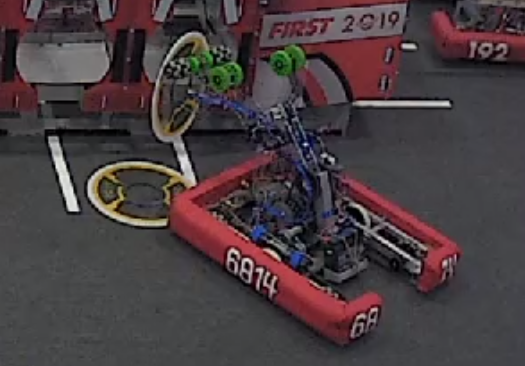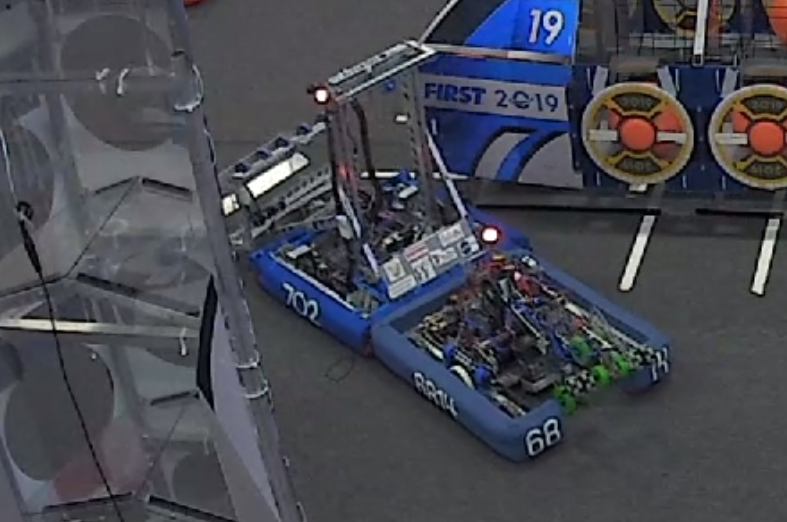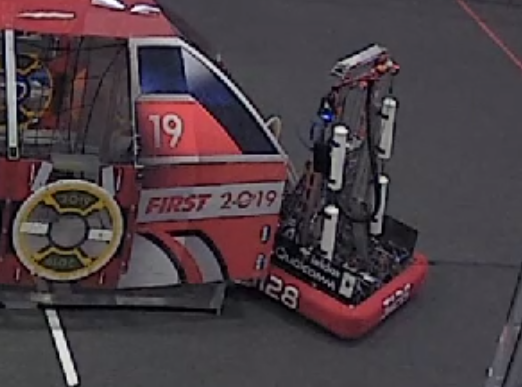Lessons Learned from a High School Robotics Competition
My son is on one of the 3,790 FIRST Robotics Competition teams around the world. This weekend his team competed in Monterey, which I watched remotely over Twitch. That, plus the past 2 months, has confirmed some key lessons. This all can be applied to the modern tech job as well as leadership.

How You Start Does Not Define You
The week before they competed in their first competition of the season in San Francisco. Out of 43 teams competing they placed 41st. A week later at Monterey they were awarded metals for being on the 3 team alliance that won the event. There is a lot of value to not giving up. To still work toward improving and doing something worthwhile. It does NOT matter how far behind you feel.
The Observers Often Don’t Know the Details
Prior to this event, the team worked for two weeks from 9 a.m. to 4 p.m. for intersession. Then there had been 4 weeks where the students on the team got to school at 8 a.m. and were done with normal classes by 3:30. They then did Robotics from 3:30 to 6 p.m.. Five days a week. And they still had homework and studying for their regular classes. They didn’t clock in. I don’t know that anyone tracked who was or wasn’t there. The end results are what mattered. And I’m sure there were other students that put in a multitude of additional hours that we don’t know about.
“You don’t get quizzes and tests, you go into competitions and get trophies and letters. You don’t have teachers, you have coaches. You nurture, you don’t judge. You create teamwork between all the participants. We justify sports for teamwork but why, when we do it in the classroom, do we call it cheating?”

Know When to Lead
The students, once on the arena and the competition starts, could have no adult interaction. It is completely student lead at that point. They take it so seriously at FIRST that one team got two yellow cards during a round, one for violating this, and lost ALL of their points for that round. It is hard as a leader to know when to back off and trust your team to do their jobs. I’ve gotten to see it as a BSA Scout Leader. We strive to create an environment where the Scouts can learn to lead, be self-reliant and also have a safe place to fail. At FIRST it really hit hard the consequences on not following this guiding principle/rule.
For leaders out there, they need to know when to lead. There are times to step back and let your team do their thing. There also are times when they need your help and you need to be there. Be able to differentiate these times. This requires time and communication, don’t neglect this!
Budget and Experience Is Not as Relevant as You Think
My son goes to a private high school, and they have advantages over a lot of other schools. But they are competing with high schools in the Bay Area and Silicon Valley. Much bigger access to large donations and technology. Some teams had also been at this for 19 years. When some teams had the resources and membership to finish their entry in a one week cram, Robert’s team needed all the time they had. And they were awarded medals Sunday. If you work hard and smart, you can go farther with less.
Not Everyone Knows Your Role or the Value You Bring
The whole team helped design, build and test the robot. At the events everyone also had a specific role. There was the core group that was in the arena, controlling the robot and doing certain tasks. But there also were students tasked as “Scouts” where they sat in the bleachers and watched a specific other robot to track metrics of its performance. With a mobile app they tracked how many points it scored and how it scored them. They also tracked how quickly the robot traversed the arena to another. When a robot can do this in under 6 seconds you really have to pay attention the entire time. And to everyone else you are just one of hundreds of spectators in the stands.
I had thought that the Scouting role was purely for strategy against the competition. I was wrong and there is way more to it. It turns out that it was also very relevant to picking teams for the finals. More to come on that . . .

Even in a World of Generalists, Some Expertise Goes a Long Ways. Know What to Watch For!
Robert’s team’s robot was very good at one of the tasks of taking a round “hatch” (disk) and attaching it to a “space ship” to help contain the “cargo” that the robots where putting in the ship. When the third seated team needed to pick who they wanted to join their alliance, they quickly picked Robert’s team. They knew that getting the “hatches” placed on the ship was critical prior to loading cargo. All of the robots were capable of placing the hatches. All could pick up and load cargo. But our team excelled at this and the other team knew it. For the team that picked us, the awareness of abilities and talents in others helped them ultimately win. Get the right people on the bus and guide them properly!
Teamwork Is Relevant. Learn It Early! Acknowledge It When You See It!
There were two different happenings in the semi-finals that really stood out. The first was when one of the robots on his alliance broke down. One of the final ways to score points is to have your robot on a platform when the time ends. Robert’s team went back and pushed the disabled robot onto the platform in time to also get itself onto a different platform. The announcer called it “Gracious professionalism at its finest!” This made for a higher score. The parents had an email chain going on that acknowledged this fact, and you can bet the adult mentors also praised the team for this.

Abandoned
Another item that I saw was when a robot on the other team got stuck under part of the arena. It eventually managed to free itself, but another robot could have helped it and given them more time to score points. Being left alone and on your own in a team setting can be quite demoralizing. I’ve experienced this personally. I was tasked with a key part of a very important project with a locked deadline. A key person assigned to help me with a blocker postponed every day for nine days. Of course I learned that I should have made noise sooner, even though every day it felt like “tomorrow I’ll be past this!”

Likewise who knows what was going on in the arena as the one team struggled to free its robot and continue to score points. In this case they did get free and did score more points. But ultimately lost the round – they were pinned 42% of the round. On mine, I delivered quality before the final deadline. But few know how I was abandoned for so long. The uninformed had an ignorant and negative view of what little impact there actually was. I took ownership for it. That being said, when this happens teams are left with no respect for the leadership that is incapable of being leaders. With the Robotics competition, you have to see things through to the end. In the tech world, skilled talent moves on much sooner when leadership is ineffective.
Don’t Leave Early. Live up to Your Commitments
Various teams had committed to be a “substitute” if one of the 6 finalists was unable to compete. When it came to the final round, both alliances needed a substitution. And many of the teams that committed to this had packed up and left. It was so bad that the FIRST Organization had a hard time overriding their software to substitute in other lower-ranked teams into the ladder. And for the two teams that unexpectedly joined the finals, they had a 50% chance of going onto the FIRST Championship in Houston, Texas. If you commit to something, live up to it. Others depend on you. It doesn’t matter if it is sticking around another 2 hours before packing up your entry, or not postponing a critical 30 minute meeting multiple times. Don’t abandon your teammates!